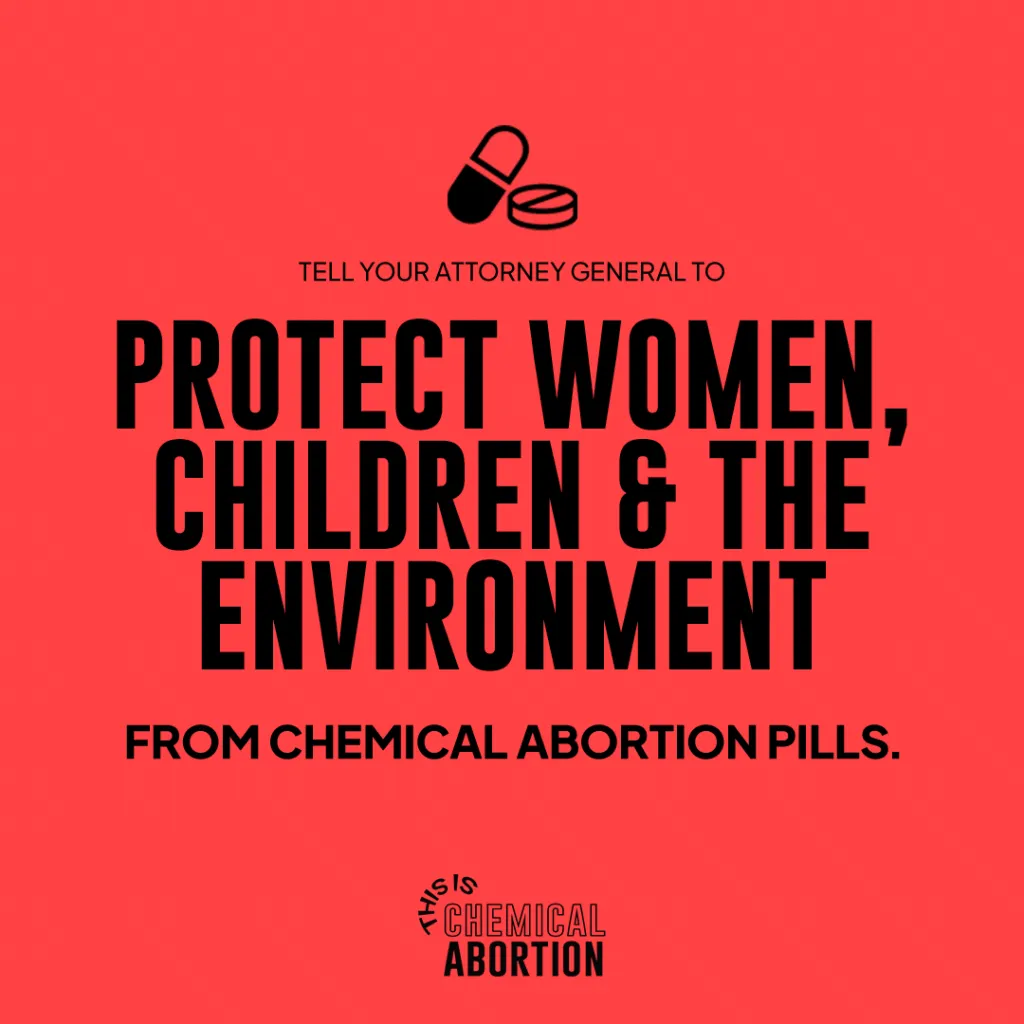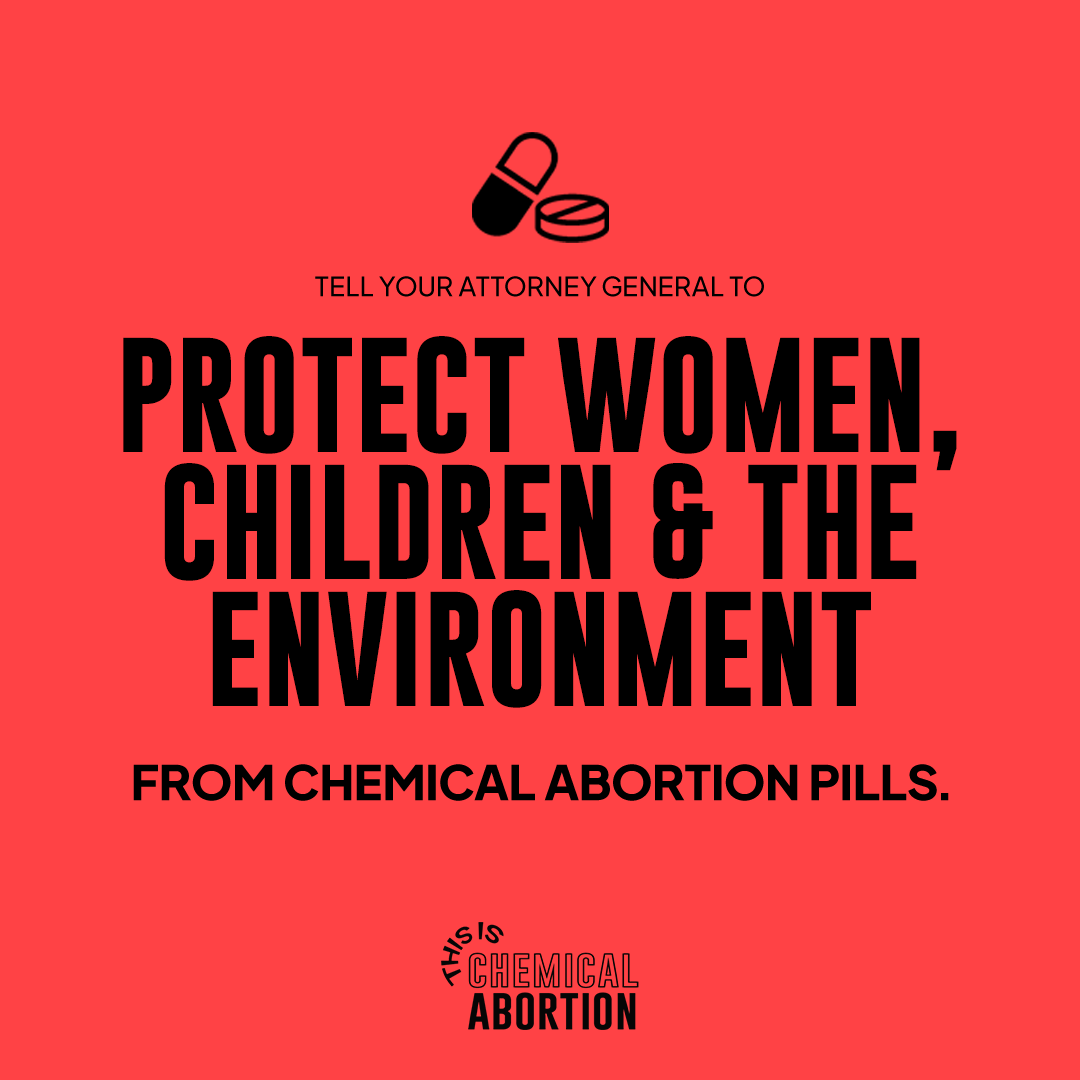You can hold one of the biggest threats to American society today in the palm of your hand. Although small in size, Chemical Abortion Pills work to kill preborn children and open women up to injury, infertility, death, and abuse. These drugs are easy to get your hands on too as both the Obama and Biden Administrations have recklessly eased regulations time and time again. In leading the fight against these wildly unsafe and deathly pills, Students for Life of America (SFLA) has submitted three Citizen Petitions to the Food and Drug Administration (FDA) which oversees such regulation. In case you’ve missed them, here’s a synopsis on all three:
For starters, what is a Citizen Petition? This is a way for individuals to petition the FDA to “issue, change, or cancel a regulation.”
Petition One: We Need a Red Bag Medical Waste Policy
The first petition sent to the FDA on November 15, 2022, asked that it be required for the FDA to compel Chemical Abortion Pill vendors to provide a Catch-Kit and Red Medical Waste Bag with all prescriptions of Mifepristone (the first drug in the two-pill Chemical Abortion regimen). The purpose of this Citizen Petition is to create further health and safety standards (also called REMS) for the disposal of tainted human remains which occur in Chemical Abortions for environmental purposes.

The basic idea behind this petition’s request is that a red bag medical waste policy is a measure the FDA can take immediately to offer protection to the environment. It’s an additional standard that could be easily enacted today. However, to date, the FDA has yet to respond to this commonsense proposal.
Petition Two: Reinstate the Health & Safety Standards
The second petition sent to the FDA on December 13, 2022, asked that the agency reverse the 2021 and 2016 Mifepristone REMS modification and restore the REMS as they were in 2011. Such a restoration to previous REMS would mean a) Mifepristone would only be administered with misoprostol (the second drug in the Chemical Abortion regimen) for up to 7 weeks gestation, b) Mifepristone only be administered by a physically present physician to reduce telehealth prescriptions, and c) women using the two-pill Chemical Abortion regimen must have three office visits.
Here’s why three visits are important: The first visit is for an ultrasound to rule out ectopic pregnancy, determine the child’s gestational age, test whether the patient is Rh-negative, and to issue Mifepristone. The second visit is to make sure the abortion was finished, and there is no remaining tissue in the woman’s body that could be infectious. The third visit is to make sure there are no further complications.)

The idea behind this petition is to limit the harm these dangerous pills can do to a woman’s body by reinstating the former, commonsense standards. However, in the same week the FDA admitted even more women have died after taking Chemical Abortion Pills, they also rejected this petition. Click HERE to read our response to their denial.
Petition Three: Protect the Environment from Mifepristone
The third and final petition sent to the FDA around Earth Day on April 19, 2023, asked that the FDA revoke its approval of Mifepristone until the agency consults with the United States Fish and Wildlife Service and the National Marine Fisheries Service to determine the effects that the usage of this drug has had on listed endangered or threatened species or designated critical habitats. Read Politico’s feature on this push HERE.
As SFLA reported earlier: “SFLA has taken this course of action after uncovering evidence which suggests Mifepristone may be harmful to the environment. This includes National Institute of Health (NIH) studies (which can be found within the petition) that show active components in these life-ending drugs have an impact on nature at large. You may be wondering what the FDA studies have to say about this as such research must be done — but that’s where the problem gets even worse because there is no such research from the administration.

“The FDA has been a five-time-failure at examining the environmental risks of these pills.
“When the administration approved Chemical Abortion Pills for public use in 2000, the FDA merely “slapped a cover memo accepting the 1996 Environmental Assessment submitted by the Population Council, which would profit from the drugs, without further research. They accepted the general opinion that the littering of the package was the main environmental concern.” When they made subsequent changes to its regulation in 2016, 2019, 2021, and 2023, environmental concerns beyond the surface level were again ignored.” To date, this petition has been unanswered by the FDA.
These three Citizen Petitions are a part of SFLA’s campaign entitled “What’s In the Water,” an initiative designed to call upon the environmentally concerned as even NIH notes that these life-ending pills can have harmful impacts to more than just women and preborn children. Stay tuned to the SFLA blog to find out the FDA’s response to our first and third petitions.
READ NEXT: Liar, Liar, Pants on Fire: Abortion Lobby Proves They Don’t Care About ‘Safe, Legal, and Rare’

